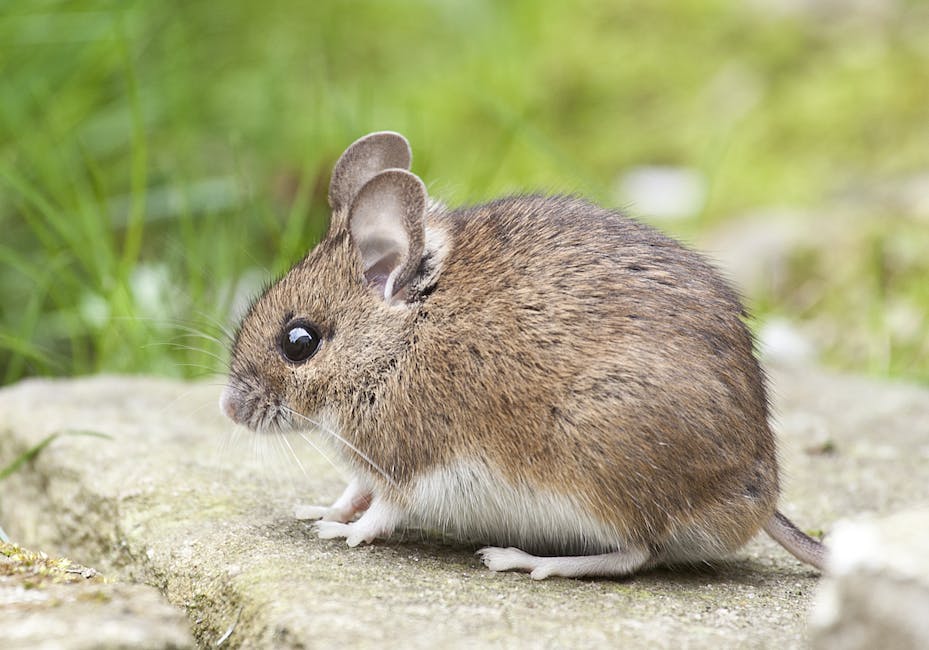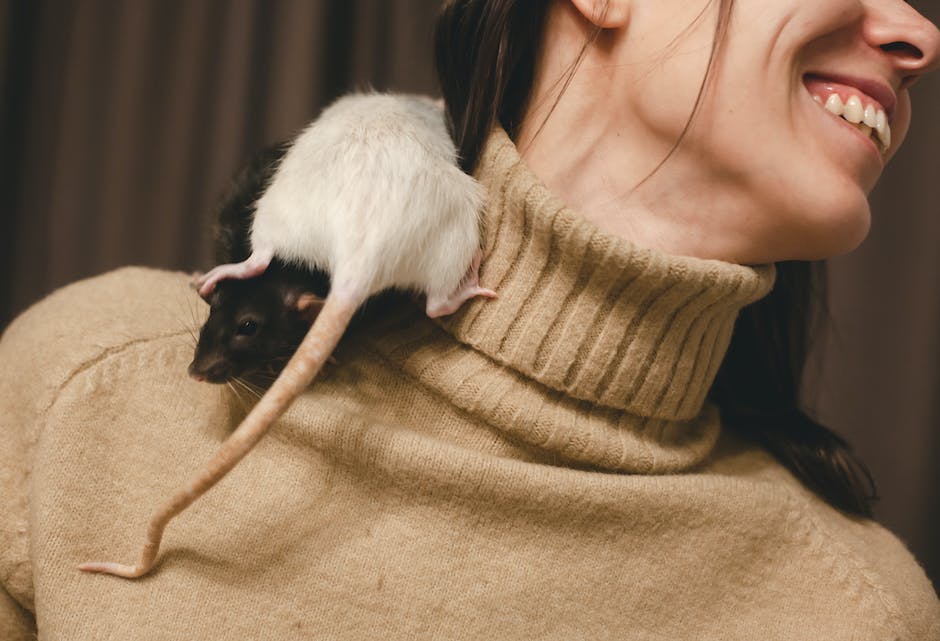If you think you have rats or mice, look for droppings, tracks, gnaw marks, or burrows. You may also hear noises, see rub marks, or find belongings that have been chewed on. If you see any of these signs, you likely have rats or mice.
If you ever think you have rats or mice, your first step should be to contact a local pest control company and schedule an inspection.
How do you tell if you have a rat or mouse?
Rats are larger than mice, have coarse red, brown, grey, or black fur (depending on the variety), and a long, scaly, fur-less tail. A mature rat can range from 11-19 inches long (including its tail) and weigh ½ to 1 pound. Mice have large ears and tiny black eyes.
If you notice any of the above signs, it’s possible you have a rat infestation. Contact a pest control professional to inspect your property and determine the best course of action.
Is it true that if you have mice you don’t have rats
Rats and mice are both rodents and while they are often mistaken for each other, the similarities really end there. These two pests don’t breed with each other and typically nest in different places. Rats are typically much larger than mice, and they also have different dietary needs. Mice are also more likely to be found in homes than rats.
If you notice any of the following signs in your home, it’s possible you have a mouse problem:
1. Scratching sounds in walls and ceilings: Mice are active at night, so you may hear them scratching around in your walls or ceiling.
2. Mice droppings: Check for small, black pellets of mice droppings near areas where they’re likely to travel or where you’ve seen other signs of them.
3. Urine pillars: Mice often leave urine pillars, which are small piles of urine-soaked material, near their nesting areas.
4. Grease rubs: Mice use their bodies to grease up areas they regularly travel through, leaving behind greasy rub marks.
5. Mouse smells: A musky smell may indicate the presence of mice.
6. Track prints: If you see small, mouse-sized footprints in dust or dirt, it’s a good sign that mice are present.
7. Damage to foodstuffs and furnishings: Mice will gnaw on just about anything, so look for signs of damage to food packaging, furniture, or other household items.
8. Unusual pet activity: If your usually calm
What noise do rats make at night?
Mice and rats can be a big nuisance in your home. You might hear them scratching and gnawing as they crawl around or chew on your walls and wires. You could also hear a scurrying noise as they move quickly across your attic. Chirps and squeaks are also common in mice, but rats usually communicate at a pitch that humans cannot hear. If you think you have a mouse or rat problem, it’s best to call a pest control professional to take care of it.
Rats have a very strong sense of smell, which means that they are repelled by strong odors. Common repellents include ammonia, mothballs, peppermint oil, crushed cayenne pepper, and pepper spray. A clean and uncluttered home is also less inviting to rats, as there is less food and places to hide.
What attracts rats to your house?
Mice and rats are attracted to two things in your home – food and shelter. Make sure you tidy up properly and don’t leave food waste on the floor or surfaces. These rodents also need shelter, especially during winter, to avoid the cold weather.
There are a number of places that rats like to hide during the day, including air ducts, behind cabinets, under refrigerators, and in ventilation systems. They also like to hide in piles of clutter, in storage boxes, and in wall and ceiling crawl spaces. If you suspect that you have rats in your home, it’s a good idea to check these areas for signs of them.
Will rats leave on their own
If you have a rat infestation, it’s important to report it so that the problem can be taken care of. Ignoring the problem will not make it go away – in fact, it will likely get worse. rats can carry diseases and cause damage to your home, so it’s best to eliminate them as soon as possible.
Rats are extremely difficult to control and get rid of effectively. They can eat the bait from a mouse trap without triggering it, and even if it does go off, a mouse trap usually can’t kill them. If you’re having trouble with rats, it’s best to call a professional.
Is it worse to have rats or mice?
Rats are more aggressive than mice, so they may pose more of a risk for biting. Mice are afraid of rats because rats will kill and eat them. Both rats and mice can carry serious diseases that can be fatal to humans.
Though mice have the ability to climb on beds, it is rare that they actually do so. Mice are prey animals, so they tend to avoid large creatures that could be potential predators as much as possible. You may worry that while you are in bed sleeping, you may look less threatening to a mouse. However, it is unlikely that a mouse will take the risk of climbing on your bed and potentially becoming prey itself.
Do mice go on your bed at night
If you find yourself sharing your bed with mice, it’s important to take measures to protect yourself. Mice may carry diseases and can be a nuisance, so getting rid of them is the best option. If you can’t get rid of them, make sure to keep your bed clean and free of food crumbs to avoid attracting them. You should also keep an eye out for droppings and footprints, and contact a professional if the infestation is severe.
Mice are nocturnal creatures, so they are most active between dusk and dawn. They don’t usually like bright lights, but a mouse may sometimes be seen during the day, especially if its nest has been disturbed or it is seeking food.
Where do mice usually hide in a house?
When it comes to choosing an indoor nesting spot, mice usually go for remote areas where there isn’t much foot traffic. This can include wall voids, attics, crawlspaces, and garages. They also like to hide in warm cavities beneath appliances, in pantries or kitchen cabinets that have easy access to food sources.
Rats are nocturnal creatures, which means they are most active at night and during the hours of dawn and dusk. They are known to be brazen at times, but will usually do everything in their power to avoid human contact.
Do rats bite when you sleep
If you encounter a wild rat, it is important to not attempt to handle or feed it by hand. These animals are not used to human contact and may bite if they feel threatened. They are also most active at night and have been known to bite sleeping people, especially children and infants, if they come into contact with exposed body parts while foraging for food. If you must remove a wild rat from your property, it is best to contact a professional who can do so safely and without risk of injury.
Rats love to hide in areas that are internal but isolated, like attics, walls, lofts, and basements. They also love to hide in outside areas that have places to hide and things to chew, like gardens. Finally, rats love to hide in dark, wet places that have things to eat, like drains and sewers.
Final Words
If you think you may have rats or mice, there are a few things you can look for to be sure. First, check for droppings. Rats and mice leave behind small, dark droppings wherever they travel. You may find these in cupboards, near food, or near nesting areas. Second, look for gnaw marks. Rats and mice like to chew on things, so you may see chew marks on food packaging, wood, or paper. Third, listen for sounds. Rats and mice are active at night, so you may hear them rustling or scurrying around in your walls or ceilings. If you see any of these signs, it’s a good idea to call a pest control professional to get rid of the problem.
There are several ways to tell if you have rats or mice. If you see droppings around your home or hear scratching noises in the walls, you may have rats or mice. You can also set up a trap to see what kind of animal is coming into your home. If you have rats or mice, it is important to get rid of them as soon as possible to prevent them from doing damage to your home.

